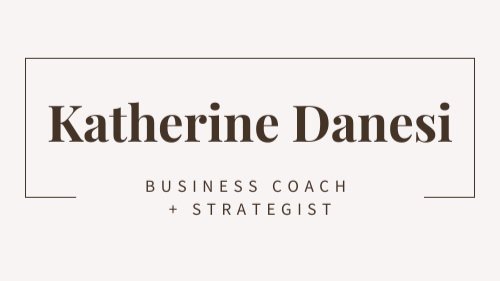It's time to get some things off your plate
Are you focusing on your high value business activities?
As a female solopreneur, you can find yourself spending your time on what’s urgent but not important in terms of your business priorities.
Or not delegating something to someone else, because you think it’s easier to do it yourself.
I know this from personal experience -- thinking that it’s easier to do it yourself, or too early to outsource some of your work, or that you can’t afford it.
When in reality your time is better spent on higher value activities that only you can do.
Because there is a cost to this thinking.
When you get caught up in the “busy work,” the to-do’s that all too often get lost at the bottom of the list are those that are Important But Not Urgent (search for The Eisenhower Matrix).
By nature, these tend to be activities that are proactive or forward-looking, and thus have the potential to have the most impact on and the greatest return for your business in the long run.
It could be:
➡️ Ideas you have for new products or services
➡️ A novel way to market your existing products and services
➡️ A contact you want to connect with regarding a potential collaboration
➡️ A much-needed review of your finances to track where your money is being spent and assess the return on your investment
As a busy entrepreneur, you need to devote a good percentage of your time to just these sorts of (important!) activities.
How do you get there?
To get to that point, you need to get a thorough understanding of where you spend your time, what you are really good at doing, and what you love (or at least like) to do.
With this particular self-assessment, you'll have roadmap of the key hires to make or activities to outsource, freeing up your time to do the things only you can do to grow your business.
What this looks like.
I have a process that I have clients work through to determine what activities/tasks to begin outsourcing. While some may be obvious, they're not necessarily the same for everyone, based on each person's talents, skills, likes/dislikes.
For example, I have a client who loves to write, so outsourcing this would take away from something that she is good at and derives pleasure from doing.
That said, the next steps of posting on her blog or setting this up in an email are not something she liked to do and are not high value in her world.
Someone else may find writing painful and choose to hire help for written content. The same applies to designing graphics, working with numbers, etc.
So yes, amen to a virtual assistant - cross-posting on social media, setting up and sending emails on Mailchimp, etc., social media graphics, to name a few.
And yes, to focusing on things you like to do that are in service of your business reaching more people - whether it’s:
➡️ Attending a virtual or IRL networking event to meet potential clients
➡️ Collaborating with a complementary service provider or brand to create something new
➡️ Hosting a Instagram Live with someone who can thrill your audience and who has an audience you’d love reach
The list goes on.
The Self-Assessment Exercise.
1. Sit down with a notebook or journal (I believe in the magic that comes from putting pen-to-paper), or at your laptop.
2. Put a heading at the top-right - Daily Activities.
3. Below that, vertically list on the page everything you do for your business each day or across multiple days, depending on how you schedule your time. And I mean, everything.
4. When that list is complete, add a column to the right with the heading - Skill Level
5. For each Daily Activity - indicate things that you are great at doing (Great), things that you are okay at executing/delivering on (Okay), and things that you are really not good at (Bad).
6. To the right of the Skill Level column, add a third heading - For each Daily Activity - indicate things that you absolutely love doing where time flies (Love), things you don’t mind doing (Like), and things you would be happy to never do again (Ditch).
7. Review what you have - this is your roadmap of the activities you should outsource and/or the key hires you can make.
8. The goal is to spend your time doing things only you can do to grow your business.
Self-Assessment Example
Note.
Here is one tactical suggestion to help ease the transition to working with others and avoid potential pitfalls.
When you do start outsourcing - in order to get the deliverable that you want - you need to be super clear as to what you expect.
And I mean really, truly over-communicate your expectations and never, ever assume that something is understood without actually stating it.
As they say, sometimes cheap (and fast) is expensive.

